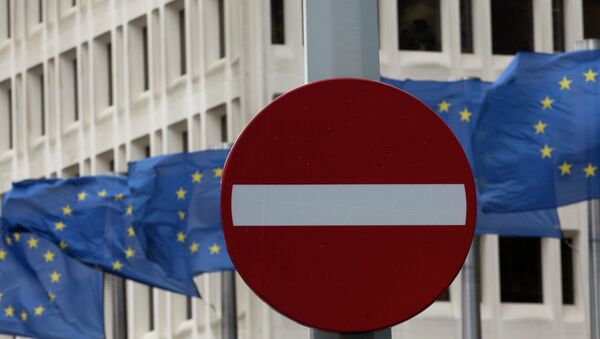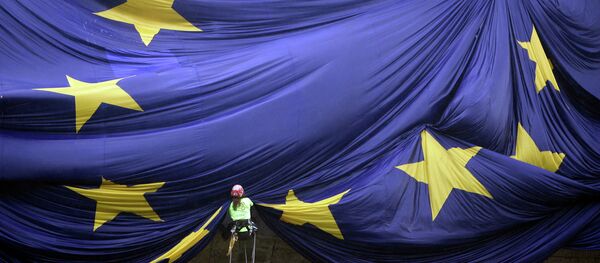Internal divisions around the East StratCom, the European Union's designed to counter what it calls "Russian propaganda" is falling apart, according to an article in Politico.eu.
The divisions are a result of both EU nations considering the unit unnecessary and internal issues within the unit itself. According to Politico, Poland initially wanted to have its own Russian-language official lead the team, but withdrew the official entirely after it turned out that a British diplomat would head it.
"Maybe it is about Ukraine or maybe they want help on Syria. But for NGOs, not annoying the Russians is not a priority," Krzysztof Bobinski, the head of Polish think tank Unia & Polska told Politico.
Practically Useless
There are two ways to look at this, the practical and the opportunistic.
From the practical perspective, Russian media provides a different editorial balance, which the Daily Beast's Anna Nemtsova found, highlights the plight of Donbass residents. What is the way to "fight" this? Believe the Ukrainian military's version of events (as Nemtsova did in the article) that Donbass militias are "shelling themselves"? That may be (kind of) effective in Ukraine where pro-government media outlets uncritically publish such claims, but it does not stand up to serious scrutiny.
And even if Western media decided to push such a line instead of silently omitting who was behind the shelling, it would simply highlight the plight of Donbass residents and shift the balance of coverage toward them anyway. Minimizing coverage also allows for manipulations of facts, only reporting on incidents that could be pinned on the militias such as in Volnovakha.
From the opportunistic perspective, the individuals who most vocally trumpeted the "threat" of what they called "Russian propaganda" have used the attention they received to promote themselves in their circles and since then moved on to bigger things. NATO funded and built its "information warfare" center in Latvia, the US government's international broadcaster raised the sum of its funding request and people propagandizing the "propaganda" such as Peter Pomerantsev are getting invited to panels they otherwise didn't have the image for.
There were no real plans to begin with, and on Thursday the Daily Beast made an attempt at sinking the topic by obtaining a 2012 "report to the authorities" by then-RIA Novosti employee Vasily Gatov claiming that RT's viewership figures are below what they were in a press release at the time. It's not clear why a 2012 "report" which revealed nothing new was only revealed now when Gatov worked with the publication since at least July, but it's possible that it was simply biding its time.
The Polish government and political establishment may have been less lucky and let their pride get the best of them, however. It could have been impressive, a Polish "expert" exposing Russian "propaganda" to the wide-shut eyes of the EU's establishment and provide funding for a new Polish-led initiative to "defend Europe" or whatever it could be. Instead, it may likely become a mundane body of Eurobureaucrats with no practical solution.



